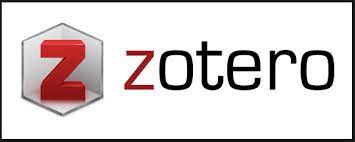THE INFLUENCE OF DIGITAL TECHNOLOGIES ON TEACHING METHODOLOGIES: A SYSTEMATIC LITERATURE REVIEW
Keywords:
Digital Technology, Teaching MethodologyAbstract
This research aims to examine the influence of digital technologies on teaching methodologies through a systematic literature review. With the rapid development of digital technologies in the last decade, understanding their impact on teaching practices has become increasingly important. The results show that digital technologies have significantly changed teaching methodologies, encouraging a more interactive, personalised and student-centred approach. The use of Learning Management Systems (LMS), mobile learning applications and online collaboration tools has increased the flexibility and accessibility of learning. However, research also revealed challenges such as the digital divide, the need for teacher training, and the importance of proper learning design. Thus, this review concludes that while digital technologies offer great potential to improve teaching, their effectiveness depends on careful implementation and ongoing support for educators and learners. Implications for future research and educational practice are also discussed.
Downloads
References
Afiyanti, Y. (2008). Focus Group Discussion as a Qualitative Research Data Collection Method. Indonesian Nursing Journal, 12(1), 58-62. https://doi.org/10.7454/jki.v12i1.201
Amsaveni, R., & Punithavalli, M. (2024). Educational Augmented Reality Working Methodology, Opportunities, and Apps. Transformative Digital Technology for Disruptive Teaching and Learning, Query date: 2024-11-20 15:51:46, 165-177. https://doi.org/10.1201/9781032675176-15
Asatiani, A., & Torell, J. (2022). Balancing digital debt and digital options: Challenges of digital transformation at Green Cargo. Journal of Information Technology Teaching Cases, 13(2), 154-164. https://doi.org/10.1177/20438869221134301
Brown, M., Nordyke, S., & Thies, C. (2022). Introduction to Teaching Undergraduate Political Methodology. Teaching Undergraduate Political Methodology, Query date: 2024-11-20 15:51:46, 1-6. https://doi.org/10.4337/9781800885479.00008
Dharaneesh, N., Priya, A. J., & Devi, R. G. (2021). Digital Teaching Methodology among the Dental Students a Questionnaire Based Survey. Journal of Pharmaceutical Research International, Query date: 2024-11-20 15:51:46, 170-178.
https://doi.org/10.9734/jpri/2021/v33i58a34103
Fawait, A., Siyeh, W. F., & Aslan, A. (2024). ISLAMIC EDUCATION MANAGEMENT STRATEGIES IN IMPROVING THE QUALITY OF LEARNING IN MADRASAS. Indonesian
Journal of Education (INJOE), 4(2), 657~665-657~665.
Gikopoulou, O., & Katsomaliari, V. (2023). A Teaching Methodology for Primary Education through the Erasmus+ Project "Supporting Inclusion and Diversity in Teaching / SIDiT" - Goals, Methodology, Implementation and Outcomes. International Journal of Technology and Inclusive Education, 12(2), 1895-1903.
https://doi.org/10.20533/ijtie.2047.0533.2023.0236
Golding, P., & McNamarah, S. (2024). Sagicor's digital transformation maturity journey.
Journal of Information Technology Teaching Cases, Query date: 2024 11-20 15:51:46.
https://doi.org/10.1177/20438869241227564
Gray, A. (2020). Teaching and Learning via Technology: Digital Feedback. Journal of Teaching and Learning in Higher Education, 1(2). https://doi.org/10.24834/jotl.1.2.583
Guna, B. W. K., Yuwantiningrum, S. E., Firmansyah, S, M. D. A., & Aslan. (2024). Building Morality and Ethics Through Islamic Religious Education In Schools. IJGIE
(International Journal of Graduate of Islamic Education), 5(1), 14-24. https://doi.org/10.37567/ijgie.v5i1.2685
Hidayat, D. N. (2009). QUALITATIVE - QUANTITATIVE DICHOTOMY AND PARADIGMATIC VARIANTS IN QUALITATIVE RESEARCH. Scriptura, 2(2).
https://doi.org/10.9744/scriptura.2.2.81-94
Ikhlas, I., Aslan, A., & Mutazam, M. (2024). THE IMPLEMENTATION OF PAI TEACHERS' INQUIRY STRATEGIES IN IMPROVING CRITICAL THINKING OF CLASS VI STUDENTS WITH THE CONCEPT OF HIGHER ORDER THINKING SKILLS (HOTS) AT SDN 06 MENSERE IN THE 2023/2024 ACADEMIC YEAR. ADIBA: JOURNAL OF EDUCATION, 4(4), 813-822.
Iksal, I., Hayani, R. A., & Aslan, A. (2024). STRENGTHENING CHARACTER EDUCATION AS A
RESPONSE TO THE CHALLENGES OF THE TIMES. Indonesian Journal of Education (INJOE), 4(3), 761~774-761~774.
Judijanto, L., Shodiqin, R., & Aslan. (2024). SOCIAL SOLIDARITY IN THE DIGITAL AGE:
CHALLENGES AND OPPORTUNITIES. Proceedings of the Indonesian National Seminar, 2(3), 357-368.
Juliani, J., & Aslan, A. (2024). THE BASICS OF CURRICULUM DEVELOPMENT: CURRICULUM
FROM THE ASPECTS OF IMTAQ AND IPTEK. International Journal Of Humanities, Social Sciences And Business (INJOSS), 3(2), 299-309.
Kaynak, E., & Russow, L. (2024). Digital Technology in Teaching International Business. CRC Press. https://doi.org/10.1201/9781003573265
Kirakosian, K., & Gates, I. (2022). Following Warren K. Moorehead's Paper Trail. Digital Heritage and Archaeology in Practice, Query date: 2024-11-20 15:51:46, 15-38. https://doi.org/10.5744/florida/9780813069319.003.0002
Meskill, C. (2021). Digital Screen Mediation in Online Learning and Teaching. Digital Screen Mediation in Education, Query date: 2024-11-20 15:51:46, 121-153. https://doi.org/10.4324/9781003013594-9
Panteli, N. (2024). Leading digital transformation: Dilemmas of a chief digital and information officer. Journal of Information Technology Teaching Cases, Query date: 2024-11-20 15:51:46. https://doi.org/10.1177/20438869241248198
Radchenko, L. K. (2020). DIGITAL AGE: METHODOLOGY OF TEACHING CARTOGRAPHIC
DISCIPLINES UNDER THE CHANGE OF GENERATIONS. Actual Problems of Education, 1(Query date: 2024-11-20 15:51:46), 174-179. https://doi.org/10.33764/2618-8031-2020-
1-174-179
Sailer, M., Murböck, J., & Fischer, F. (2021). Digital learning in schools: What does it take beyond digital technology? Teaching and Teacher Education, 103(Query date: 2024- 11-20 15:51:46), 103346-103346. https://doi.org/10.1016/j.tate.2021.103346
Sarmila, U., Aslan, A., & Astaman, A. (2023). THE ROLE OF PARENTS TOWARDS YOUTUBE USERS IN BUILDING CHILDREN'S RELIGIOUS BEHAVIOUR IN KUALA PANGKALAN
KERAMAT VILLAGE. Archipelago Journal of Southeast Asia Islamic Studies (AJSAIS), 1(2), 116-122.
Sartika, E., & Fransiska, F. W. (2024). UNDERSTANDING THE STUDENTS' ENGLISH LEARNING ACHIEVEMENT AND HOME ENVIRONMENT SUPPORTS DURING SCHOOL CLOSURE TO RESPOND TO THE PANDEMIC AT PRIVATE MADRASAH
TSANAWIYAH AT-TAKWA SAMBAS. International Journal of Teaching and Learning, 2(4), 939-953.
Serman, L., & Nych, O. (2021). INTRODUCTION OF DIGITAL TECHNOLOGIES IN ENGLISH
LANGUAGE TEACHING METHODOLOGY. Educational Discourse: Collection of Scientific Papers, 30, 35-45. https://doi.org/10.33930/ed.2019.5007.30(1)-4
Shmyhol, M. F., & Yushkevych, Yu. S. (2022). PROBLEMS OF HUMANITARIAN EDUCATION IN THE DIGITAL AGE: ANTHROPOLOGICAL DIMENSION. Scientific Knowledge:
Methodology and Technology, 1, 36-42. https://doi.org/10.24195/sk1561-1264/2022-1-6 Sitopu, J. W., Khairani, M., Roza, M., Judijanto, L., & Aslan, A. (2024). THE IMPORTANCE OF INTEGRATING MATHEMATICAL LITERACY IN THE PRIMARY EDUCATION
CURRICULUM: A LITERATURE REVIEW. International Journal of Teaching and Learning, 2(1), 121-134.
Sivakumar, A. (2024). Gamification for Teaching Beyond for Creative Learners. Transformative Digital Technology for Disruptive Teaching and Learning, Query date: 2024-11-20 15:51:46, 101-112. https://doi.org/10.1201/9781032675176-9
Suganya, E., & Vijayarani, S. (2024). Digital Learning Resources. Transformative Digital Technology for Disruptive Teaching and Learning, Query date: 2024-11-20 15:51:46, 1-25. https://doi.org/10.1201/9781032675176-1
Syakhrani, A. W., & Aslan, A. (2024). THE IMPACT OF INFORMAL FAMILY EDUCATION ON
CHILDREN'S SOCIAL AND EMOTIONAL SKILLS. Indonesian Journal of Education (INJOE), 4(2), 619~631-619~631.
Szabó, I. (2023). Digital Learning Materials in Teaching Languages for Special Purposes in Higher Education in QuILL Project. E-Methodology, 9(9), 115-126. https://doi.org/10.15503/emet.2022.115.126
Vijayarani, K. (2024). Disruptive Teaching and Learning Strategies for Modern Learners. Transformative Digital Technology for Disruptive Teaching and Learning, Query date: 2024-11-20 15:51:46, 36-43. https://doi.org/10.1201/9781032675176-3
Wekke, I. S. (2020). Qualitative Research Design. Query date: 2024-05-25 20:59:55.
https://doi.org/10.31219/osf.io/4q8pz
Wymbs, C., & Kijne, H. (2024). Digital Technology in Teaching International Business: Is a Tradeoff Between Richness and Reach Required? Digital Technology in Teaching International Business, Query date: 2024-11-20 15:51:46, 29-40. https://doi.org/10.1201/9781003573265-3
Yates, S. J., Hine, I. C., Pidd, M., Fuselier, J., & Watry, P. (2020). ESRC Review: Methodology. The Oxford Handbook of Digital Technology and Society, Query date: 2024-11-20 15:51:46, 35-54. https://doi.org/10.1093/oxfordhb/9780190932596.013.2








